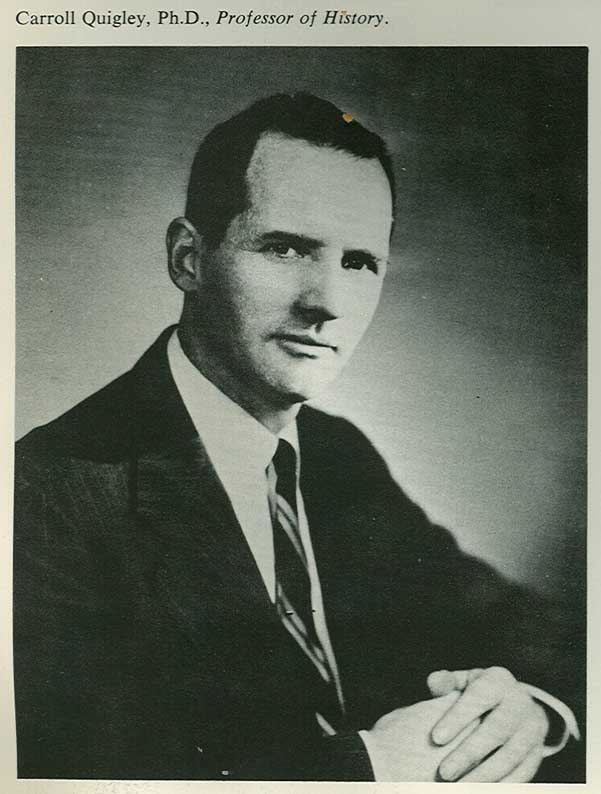Date of Birth: November 9, 1910
Zodiac Sign: Scorpio
Date of Death: January 3, 1977
Biography
Carroll Quigley was an influential American historian and theorist, best known for his work on the evolution of civilizations and his analysis of the role of elite groups in shaping historical events. Born on November 9, 1910, in Boston, Massachusetts, Quigley went on to graduate from Harvard University, where he earned his Ph.D. in history in 1938. His academic career included teaching positions at Princeton University and Harvard University, but he found his long-term academic home at the School of Foreign Service at Georgetown University, where he taught from 1941 to 1976. Quigley’s most notable works include “Tragedy and Hope: A History of the World in Our Time” and “The Evolution of Civilizations.” In these books, he explored the cyclical nature of civilizations and the influence of secret societies and financial elites in global politics. His theories have been both lauded and criticized, but they remain influential and are often cited in discussions of conspiracy theories and elite power structures. Quigley’s interests were not confined to academic circles; he also served as a consultant for the U.S. Department of Defense and the U.S. Navy. His insights into international relations and historical patterns provided valuable perspectives during the Cold War era.
5 Interesting Facts about Carroll Quigley
1. Carroll Quigley served as a consultant for both the U.S. Department of Defense and the U.S. Navy.
2. His book “Tragedy and Hope: A History of the World in Our Time” was initially published in 1966 and became a crucial text for understanding 20th-century history.
3. Quigley is often quoted by proponents of various conspiracy theories due to his in-depth research on secret societies.
4. He was a mentor to Bill Clinton during his time at Georgetown University; Clinton mentioned Quigley in his acceptance speech at the 1992 Democratic National Convention.
5. Quigley believed in the cyclical nature of history, proposing that civilizations go through predictable phases of growth and decline.
5 Most Interesting Quotes from Carroll Quigley
1. “The argument that the two parties should represent opposed ideals and policies, one, perhaps, of the Right and the other of the Left, is a foolish idea acceptable only to doctrinaire and academic thinkers.”
2. “The powers of financial capitalism had another far-reaching aim, nothing less than to create a world system of financial control in private hands able to dominate the political system of each country and the economy of the world as a whole.”
3. “The tragedy of our time is that cultural change is occurring so rapidly that traditional values, institutions, and ways of life are being undermined before new values, institutions, and ways of life can be created.”
4. “The chief problem of our era is the absence of moral leadership.”
5. “The individual is handicapped by coming face-to-face with a conspiracy so monstrous he cannot believe it exists.”
Highest Net Worth Achieved
Carroll Quigley’s highest net worth is not well-documented, but as a respected academic and author, his wealth would have been modest compared to contemporary standards of financial success.
Children
Carroll Quigley and his wife Lillian Fox Quigley had two sons, Carroll Quigley Jr. and John Quigley.
Relevant Links
1. [Carroll Quigley’s Biography on Wikipedia](https://en.wikipedia.org/wiki/Carroll_Quigley
3. [Georgetown University School of Foreign Service](https://sfs.georgetown.edu/


